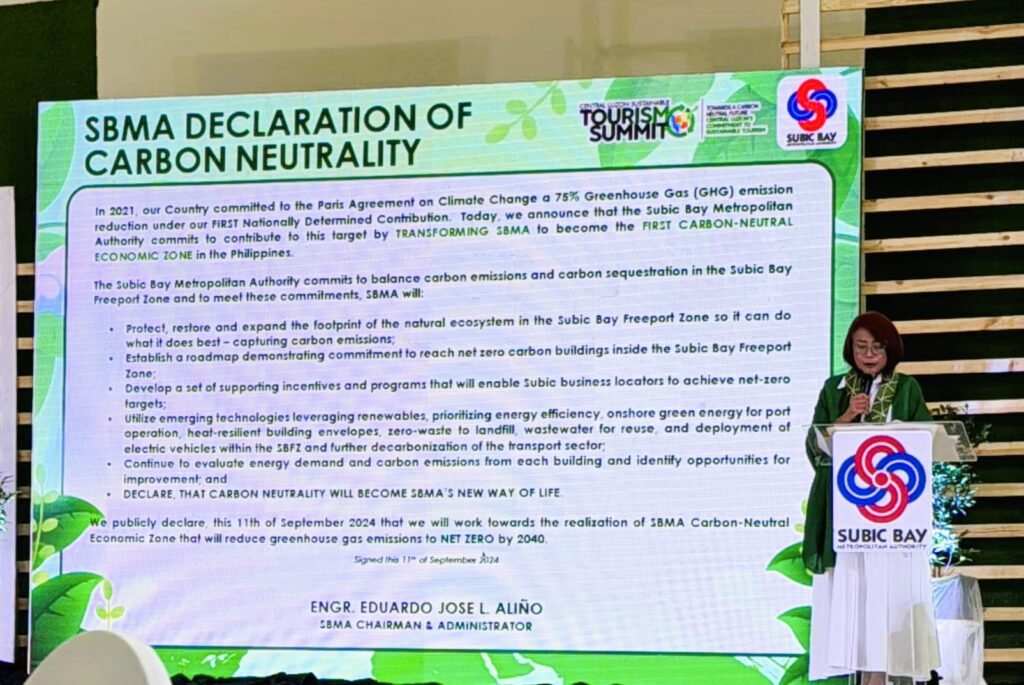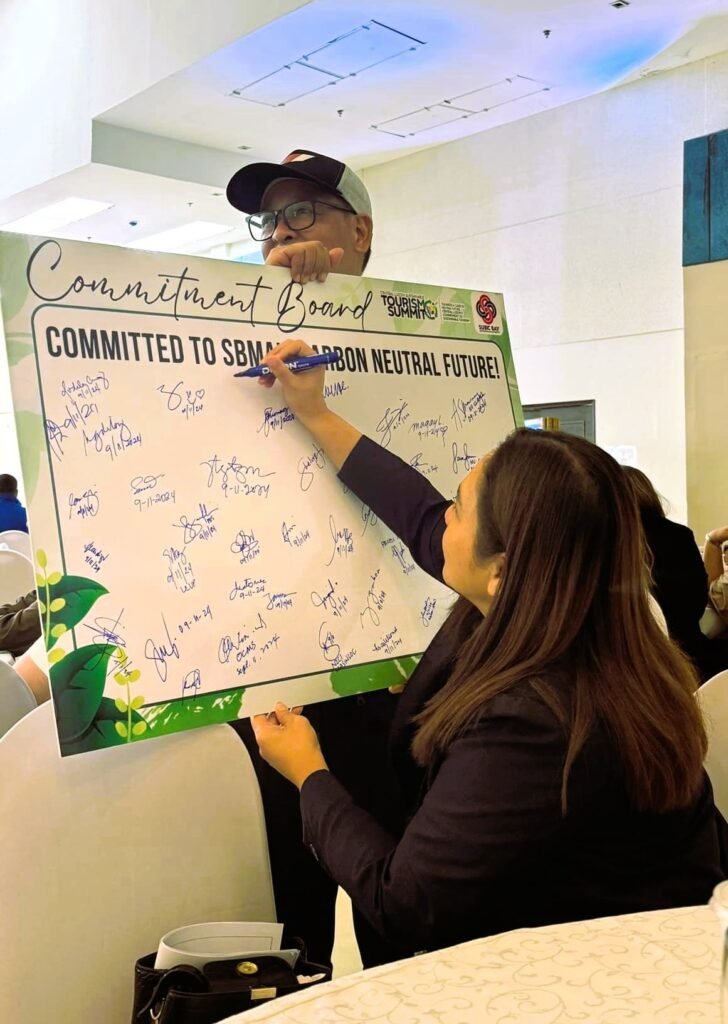The Subic Bay Metropolitan Authority (SBMA) has declared its commitment to make Subic the first carbon-neutral economic zone in the country by reducing the carbon footprint of industries, business establishments, offices and households in the Subic Special Economic and Freeport Zone.
SBMA Ecology Center manager Amethya dela Llana, who read the agency’s “Declaration of Carbon Neutrality” during the opening of the two-day Central Luzon Sustainable Tourism Summit at the Subic Bay Exhibition and Convention Center here last week, said Subic seeks to gain a zero-carbon balance
within 16 years.


Dela Llana that from hereon, carbon-neutrality will become SBMA’s “new way of life.”
Subic, which became a special economic zone in 1992, now boasts of some 1,800 registered investors employing more than 158,000 workers. It is also home to thousands of residents living in three housing areas.
Dela Llana said the SBMA pledged its carbon-neutral goal in support of the government’s 2021 commitment to the Paris Agreement on Climate Change for a 75 percent reduction of greenhouse gases under the first nationally-determined contribution.
She said that for its carbon-neutral objective, the SBMA will expand the green footprint of the environment in the Subic Freeport.
Dela Llana said the SBMA will leverage for this program the 10,000-hectare Subic Watershed Forest Reserve, and an estimated 60 hectares of wetlands and mangrove area, as well as seagrass beds in the bay, which are natural carbon sinks.
Subic’s coastal and marine ecosystem, she explained, could store the so-called “blue carbon”, which are carbon dioxide sequestered in the soil and silt under the seabed.
Dela Llana said the SBMA will protect and restore Subic’s natural ecosystem “so it can do what it does best – capturing carbon emissions.”
The SBMA also committed to establish a roadmap for net zero-carbon buildings inside the Subic Bay Freeport Zone under the carbon-neutral program. It will also develop a set of supporting incentives and programs that will enable Subic business locators to achieve net-zero targets, and use emerging technologies leveraging renewable energy.
Last month, SBMA Chairman and Administrator initially identified the “Shore Power Connection for Carbon Neutral Ports” project as an SBMA initiative to reduce emissions in the free port.
Aliño said this will provide shoreside electrical power to a ship at berth while its main and auxiliary engines are shut down, cutting air pollution from ships at berth by 95 percent. The project will be the first of its kind in the country, he added.
Other projects in the pipeline involve decarbonizing buildings and transportation, adopting low-carbon infrastructure designs, energy efficiency and conservation, leveraging renewable energy sources, as well as solid waste and waste water management, the SBMA official said.
During the launch of the carbon-neutrality program, delegates to the tourism summit also signed the SBMA Declaration of Carbon Neutrality. These included Tourism Regional Director for Central Luzon Richard Daenos, SBMA Director Raul F. Marcelo, Hospitality Alliance of Subic Bay Freeport Zone representative Pamela S. Konghun, Subic Bay Chamber of Commerce representative Donna May Tamayo, and Atty. Carminda Z. Fabros of the Subic Clark Alliance for Development. — Taktikom News & Features














